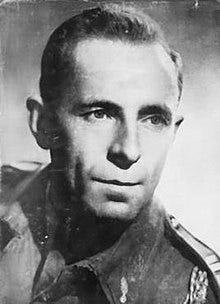Greetings,
Apologies for the paucity of posts. As you can see I have been in Normandy where I came across the story of Michel Hollard. There’s a pay wall in his story. You can sign up as a paying subscriber for £1.15 a week on an annual fee or read for nothing on a free trial!
Best, Nick
It is almost impossible for a western civilian to imagine fighting on the frontline in Ukraine. I suspect that even among serving and former soldiers only a few elderly ex-servicemen can do it. No Western army has fought a war of artillery fire and counterfire, with snipers taking aim across trenches, and the infantry taking a deep breath as it prepares to cross minefields, since Korea in the early 1950s.
As for civilians, how can we begin to understand the experience of mass warfare? We make our choices because we assume we have individual freedom. Soldiers in a hierarchical organisation engaging in war on a scale not seen in Europe since 1945, are by necessity stripped of the power to choose. They are utterly remote to us.
Resistance fighters behind enemy lines are another matter. Civilians in occupied Ukraine are not soldiers but people like us with jobs, families and quiet lives. We can imagine the choice the occupation forced on them between fighting, collaboration or keeping their heads down. We like to think that in their circumstances we would resist, although the evidence from Nazi-occupied Europe is that it requires extraordinary courage to fight back.
Near where I was staying in an unseasonably cold and rain-drenched Normandy is Val Ygot, the best preserved of 103 V1 launch sites the Nazis in northern France. The Vergeltungswaffe I ("Vengeance Weapon”) was the first cruise missile. Developed at Wernher von Braun’s research station at Peenemünde on the Baltic, the Nazis intended to unleash the V1s with devastating force on London.
The V1 site at Val Ygot
Although many missiles flew, the V1 campaign was a military failure because of the work of one of the most successful members of the French resistance: Michel Hollard. His story is both an inspiration and an admonition: whatever fantasies we tell ourselves, very few among us would be capable of making Hollard’s choice
According to General Brian Horrocks, who commanded British forces at the D-Day landings, Hollard was “literally the man who saved London”.
Keep reading with a 7-day free trial
Subscribe to Writing from London to keep reading this post and get 7 days of free access to the full post archives.





